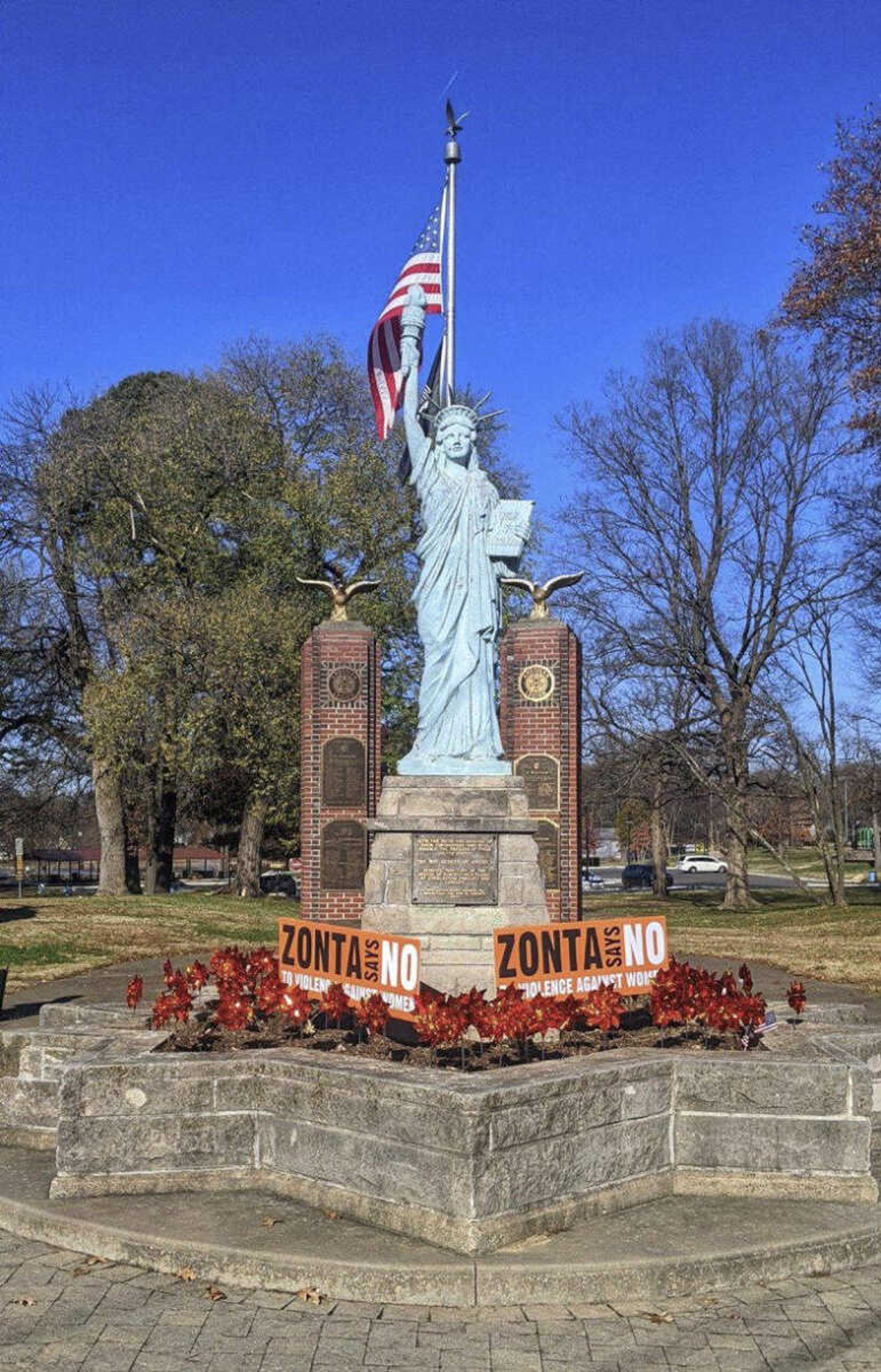Gender-based violence prominent in Missouri, especially during coronavirus pandemic
Missouri was the second-worst state per capita in the United States with regards to women being murdered by men, according to a report written by the Violence Policy Center. In the report, which uses data from 2018, 73 women were murdered by men in the state. Most of the women killed by men in 2018 were victims of people they knew...
Missouri was the second-worst state per capita in the United States with regards to women being murdered by men, according to a report written by the Violence Policy Center.
In the report, which uses data from 2018, 73 women were murdered by men in the state. Most of the women killed by men in 2018 were victims of people they knew.
"The vast, vast majority -- I think it was somewhere in the 75-80% range -- of those people were in an intimate relationship with the man who killed them," said Jessica Hill, executive director of the Safe House for Women in Cape Girardeau. "So we are talking about a domestic violence issue."
A large part of the issue can be tied to gun ownership; according to the VPC's report, 67% of victims were shot and killed with guns.
"We do have a loophole in our Missouri gun laws that allows for people who have protective orders against them to still own a gun," Hill said. "Federally, that's illegal, but in the State of Missouri that's no longer the case. This loophole's been in place for four years, and they've not succeeded in fixing it yet."
Hill said she feels the State of Missouri should take this situation to heart.
"People, when they think of the highest number per capita of deaths of women killed by men, they think about more populous states, or states where they feel that there's more violence or states where there's been unrest of various kinds," Hill said. "But we're talking about people who live in our own communities here in our state, and there's obviously more that we need to do as a state and as local communities to reach out to victims.
"We need to educate people to look for signs, not only in their own relationships, but in their family and friends' (relationships) and be willing to speak up and say something if they feel like somebody's in a relationship that's not healthy or not safe."
Rural areas
It's not just major cities in Missouri that contribute to this issue, it's also the rural communities.
"It can be just as bad (in rural areas), because, first of all, lack of access to resources is much higher in rural areas," Hill said. "There are counties in Southeast Missouri where there is no shelter, where there are very, very few social services of any kind that you can reach out to. That makes it difficult. And you have the isolation issue. Maybe you live a fair distance from your neighbors, or from family and friends, to the point where they can't check on you, or you can't easily get to them. You can really be out there on your own in a situation that can be really dangerous and no one knows.
"The other issue for people in rural situations is transportation. It's very easy to control someone by taking away their car, or not allowing them to have a car. If you can't rely on a bus, or a cab or some other form of transportation, then you're really stuck."
COVID-19
The coronavirus pandemic has taken its toll on everyone in the United States, but it has been particularly difficult for women in potentially abusive relationships. According to Hill, call numbers have been up for Safe House for Women, and the intensity of the calls have been more severe.
"Initially, when the shutdown first happened, there was a fairly significant drop-off in calls," Hill said. "I think that was because people were, essentially, trying to hunker down and do the best that they can because everyone was telling everyone to stay home and that sort of thing during the shutdown. But after that, probably within six weeks, then we started to see an increase in calls."
Hill is a member of the Zonta Club of Cape Girardeau, an organization that draws attention to gender-based violence. Over the weekend, the Zonta Club held a display of 73 orange pinwheels at Capaha Park's Liberty Corner to represent the 73 women murdered in Missouri. This Saturday, the organization will hold a demonstration at Capaha Park to draw attention to the issue.
"We have several groups who we've invited to participate with us, but everyone is welcome," Hill said. "Community members are definitely welcome. They're welcome to bring signs to show that they not only support victims of domestic violence but then also the work that's being done to try to help victims."
Cape Girardeau's Safe House for Women is accepting clients from Cape Girardeau, Bollinger, Scott, Perry and Stoddard counties.
"Usually we accept clients from everywhere, but because of COVID, we've had to kind of limit our area to this region," Hill said. "Hopefully by next year we will be able to lift that restriction. ... If somebody calls from outside our region, then we refer them to the shelter closest to them."
What to do?
Above all else, Hill wants victims to know they're not alone.
"The first step is to get to a safe place and call us, or text us," Hill said. "That doesn't mean you have to leave today. We understand that it's a process and you have to have a safety plan in order to keep yourself and your children safe. We want to help you every step of the way with that.
"Just call and talk to us about your situation, and let us fill you in on the services that we provide, the resources that we offer and what your options are. You do have a lot of options even if you feel like you don't."
If you or someone you know is a victim of gender-based violence, Safe House for Women may be contacted by calling its 24-hour hotline at (573) 651-1614, its toll-free number at (800) 341-1830 or texting (573) 340-1060.
Connect with the Southeast Missourian Newsroom:
For corrections to this story or other insights for the editor, click here. To submit a letter to the editor, click here. To learn about the Southeast Missourian’s AI Policy, click here.











